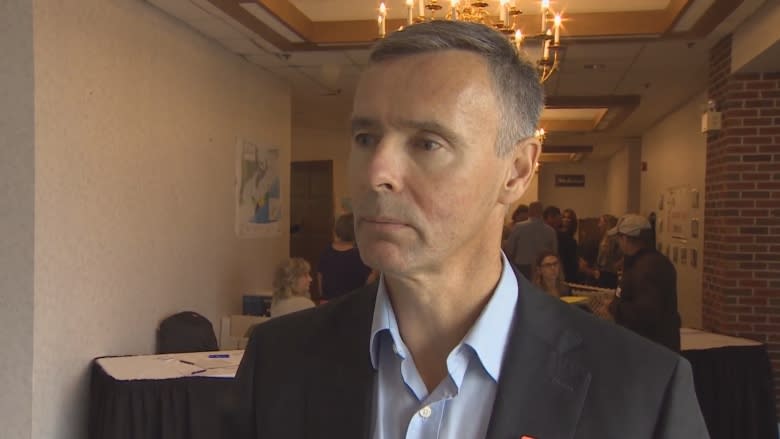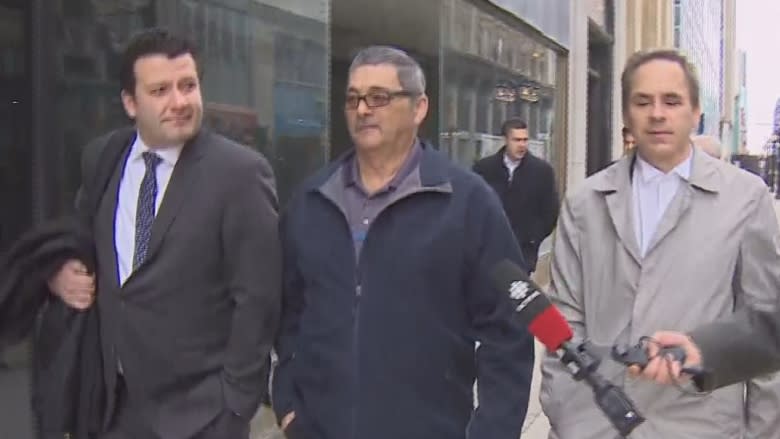DFO cracks down on fishing licences it says are fronts for corporations
Canada's Department of Fisheries and Oceans is taking action against more Atlantic fishermen it says are holding inshore fishing licences as fronts for corporations.
The department says it has notified a number of fishermen in "controlling agreements" that their licences are forfeit.
"There are a number of cases that we've told the individuals that we believe they are in a controlling agreement. We've told them we believe their licences are not eligible for renewal," says Morley Knight, assistant deputy minister for DFO.
Such licences are known in the industry as company licences. A fisherman holds the inshore licence — as required by DFO — but in name only.
In many cases, the boat is supplied by a company that also reaps the profits generated from the catch. The arrangement is put in writing in a controlling agreement between the fisherman and company.
DFO considers them an end run around its policy that local fishermen control inshore licences and the benefits.
DFO won't say how many licences at risk
In May, the department won a Federal Court of Canada test case upholding its policy, Preserving the Independence of the Inshore Fleet in Canada's Atlantic Fisheries, known as PIIFCAF.
The policy requires an annual declaration by inshore licence holders that they are not in a controlling agreement.
The policy was challenged by Labrador snow crab fishermen Kirby Elson, who refused to exit a controlling agreement with two Newfoundland and Labrador processors and subsequently had his licence revoked by DFO.
Since then, Knight says, "we've stepped up our level of activity."
DFO has developed a consistent, region-wide enforcement approach, he says, and there will be more licence reviews this fall.
With appeals pending before the Atlantic Fisheries Licence Appeal Board, Knight declined to say just how many licences are facing forfeiture.
After Elson lost his licence, in late 2015 the department confirmed two more fishing licences had been revoked after review. The threat now hangs over the industry.
Inshore fisheries groups say there are likely hundreds of controlling agreements. DFO says they are concerned about southwest Nova Scotia and Newfoundland and Labrador.
"I think that's the message for people: they should be very careful about being in situations," Knight says. "They should be watchful that they don't get into an agreement that contravenes the policy."
Corporate interests fighting back
Last June, corporate interests behind the Kirby Elson case appealed to the Federal Court of Appeal seeking to have the decision set aside.
Lawyers for one of Canada's largest law firms, McCarthy Tétrault, are representing Elson, who has said he was too poor to fish on his own.
Elson, 62, has refused to say who is footing his legal bill.
Elson's appeal picks up on one of the legal arguments that was upheld in the May Federal Court decision.
Justice Cecily Strickland said in denying Elson's appeal, the minister's decision letter limited his discretion.
The letter identified the policy to preserve the independence of the inshore fishery as the only avenue open to an exemption, when the minister had broader authority to grant Elson relief in an appeal.
"Such an exemption would have been reasonable particularly given the evidence of Mr. Elson's circumstances as a longtime commercial fish harvester who depended on his controlling agreement for his livelihood," lawyer Byron Shaw wrote in the appeal.
However Justice Strickland ultimately concluded the minister "could not reasonably reach a different outcome on the facts and law."
Elson's lawyers also argue he didn't get a fair hearing when he appealed the loss of his licence and DFO policy interferes with private contracts between fishermen and companies, which is a matter of provincial jurisdiction.
DFO has not filed its arguments in the appeal.

 Yahoo Finance
Yahoo Finance 

